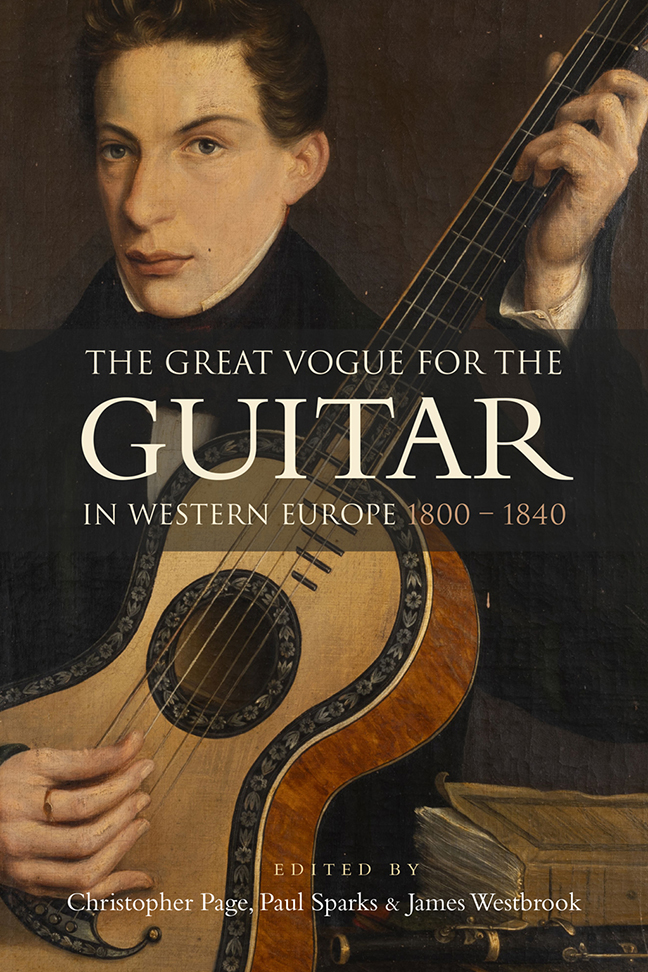Book contents
- Frontmatter
- Dedication
- Contents
- List of Illustrations
- Music examples
- The editors and the contributors
- Foreword
- Acknowledgements
- List of Abbreviations
- Introduction: The Great Vogue for the guitar
- I Contexts
- II The repertoire and its composers
- Appendix: A note on string-making
- Glossary of guitar terms
- Select Bibliography
- Index
5 - Amateurs and professionals
Published online by Cambridge University Press: 10 January 2024
- Frontmatter
- Dedication
- Contents
- List of Illustrations
- Music examples
- The editors and the contributors
- Foreword
- Acknowledgements
- List of Abbreviations
- Introduction: The Great Vogue for the guitar
- I Contexts
- II The repertoire and its composers
- Appendix: A note on string-making
- Glossary of guitar terms
- Select Bibliography
- Index
Summary
Today, William Heath's engraving Amateur Concert looks like a satire upon the small group of musicians stationed on the plain rug to the right of the picture (Illustration 5.1). They are no doubt doing their best, but one member of the audience, hands in pockets, yawns capaciously, while another sabotages a candle, perhaps in the hope of bringing proceedings to an end. We might suppose that there is no difficulty in calling the singers and players ‘amateur’ musicians in the familiar, potentially disparaging, sense of that word, and yet it was precisely during the decades of the Great Vogue for the guitar that this pejorative meaning was in competition with a much older and more positive sense of what it was to be an amateur. Read in that spirit, the title Amateur Concert means ‘a gathering of musical amateurs for a concert’, with ‘amateurs’ understood to mean ‘devotees’ of music, regardless of whether they are singing, playing or listening. To find that a term so freely used in modern discussions of musical life during the earlier nineteenth century bore a sense rather different from the one commonly understood today (though clearly connected with it) prompts various questions about ‘amateur’ and ‘professional’ identity during the Great Vogue for the guitar, which it is the purpose of this chapter to address.
Being an amateur
To examine this matter of the identity of guitarists, we might begin by asking a question that, on the face of it, seems extraordinary: Was Fernando Sor, for example, a professional or an amateur player? To imagine Sor in London around 1820 is to picture him making his way to the houses of his pupils, often in the elegant squares of the city's West End, entering mansions by the tradesmen’s entrance and giving the paid lessons in guitar playing or vocal technique that provided him with much of his income. Hence, it would seem strange today to call Sor an ‘amateur’ musician; by our standards, he was plainly a professional, and when he was forced to leave Spain in 1813 he is reputed to have said that he would tear off his military stripes and take up his guitar again to make a living for himself and his family.
- Type
- Chapter
- Information
- The Great Vogue for the Guitar in Western Europe1800-1840, pp. 77 - 92Publisher: Boydell & BrewerPrint publication year: 2023

